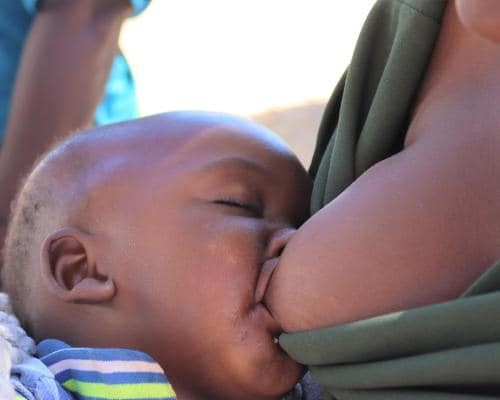By Ndey Sowe
At Bundung Maternal and Child Hospital, the cries of newborns and the smiles of relieved mothers echo a renewed promise, one that could change the lives of countless babies across The Gambia. On Wednesday, the hospital reaffirmed its commitment to the Baby-Friendly Hospital Initiative (BFHI), a global program by WHO and UNICEF that ensures mothers and infants get the best possible start through breastfeeding support.
The initiative coincides with The Gambia’s month-long commemoration of World Breastfeeding Week (WBW), observed globally from August 1 to 7. This year’s theme, “Breastfeeding: Create Sustainable Support Systems,” chosen by the World Alliance for Breastfeeding Action (WABA), highlights breastfeeding as not only a health priority but also a sustainable practice that benefits families, communities, and the environment.
Globally, exclusive breastfeeding for the first six months could save more than 820,000 children every year, according to UNICEF and WHO. Yet only 44 percent of infants worldwide are exclusively breastfed for the first six months. In The Gambia, nearly 54 percent of children under six months were exclusively breastfed, according to the 2019/2020 Demographic and Health Survey, showing progress, but still short of the WHO 2030 target of 70 percent.
Bundung Hospital emerged as the best-performing facility among five public hospitals assessed in 2025, meeting six out of ten BFHI criteria and receiving a Certificate of Commitment.
Dr. Mamady Cham, CEO of Bundung Maternal and Child Hospital, explained the hospital’s ongoing efforts. “Committed to be designated as a BFHI facility, the management and staff have since June this year initiated a process to review our BF Policy and develop a costed BF Policy and Action Plan. This process is ongoing, and we invite our partners, proponents, and interested stakeholders to support the hospital in that endeavor,” he said.
Dr. Cham also recalled the history of BFHI in The Gambia: “In 1993, BFHI was introduced in four health facilities, Basse, Essau, Bansang, and the then Royal Victoria Hospital. By 1998/2000, the initiative expanded to sixteen more facilities, making it 20 implementing sites. In 2019, the initiative was revitalized to concentrate on selected health facilities, aiming to attain at least one certified BFHI facility and to subsequently scale up. In 2025, five public facilities, Bundung, Basse, Essau, Kanifing, and Farafenni, were assessed.”
Bakary Jallow, Deputy Director General of NaNA, said the commemoration also serves as a platform to advocate for stronger institutional support. “Through the commemoration, NaNA plans to advocate for commitment from government institutions, the private sector, and lawmakers to establish breastfeeding-friendly workplaces,” he said.
Other speakers echoed the importance of breastfeeding as both a health and environmental imperative. Binta Janneh Jallow, Deputy Mayor of KMC; Yankuba Saho, Nutrition Specialist at UNICEF; and Musa Camara, Regional Director for Western One, reiterated that every child should be exclusively breastfed for the first six months, followed by continued breastfeeding with appropriate complementary foods for up to two years and beyond, regardless of background or status.
“Breastfeeding is natural, renewable food that is environmentally safe,” they added. “It is produced and delivered without pollution, packaging, or waste, thus creating a sustainable solution that is good for the planet and its people.”
Throughout August, NaNA and partners will intensify social and behavioral change communication engagements, including press conferences and community outreach, to inform the public about the importance of breastfeeding and to promote sustainable support systems for mothers and families.
For Bundung Hospital, the renewed commitment is more than a certificate, it is a pledge to mothers, children, and the community that every newborn deserves the best start in life.





















